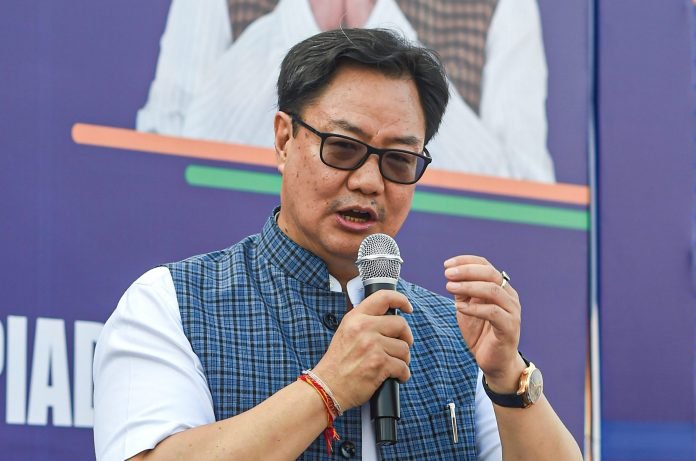New Delhi, Sept 25: Kiren Rijiju, the Minister of Minority Affairs, expressed confidence that the Joint Parliamentary Committee (JPC) on the Waqf (Amendment) Bill will submit its report within the stipulated timeframe. Rijiju emphasized that the consultation process being undertaken by the committee is the most extensive in the history of India’s parliamentary democracy.
Speaking at a press conference marking the first 100 days of his ministry, Rijiju said that the committee is expected to complete its mandate and table the report before the last day of the first week of the Winter Session of Parliament. Although the exact dates for the session have yet to be announced, Rijiju stated, “The way and speed at which Parliament’s joint committee is functioning, they should be able to table the report as stipulated. They will fulfil it.”
Extensive Consultation Process
Rijiju also highlighted the extensive consultation process being conducted by the JPC, noting that over 1.25 crore feedback submissions had been received, making it one of the most comprehensive hearings ever undertaken. He said, “The Waqf amendments have been consulted upon more extensively than any other in history, including those in 1954, 1995, and 2013. This is a positive sign for democracy.”
The minister praised the JPC Chairperson, Jagdambika Pal, and all committee members for their commitment to hearing views from all sides, including government organizations and civil society groups. Rijiju remarked, “Such extensive hearings have never taken place in our history. The Ministry of Minority Affairs is fully cooperating, and the Secretary and his team are working hard to support the committee.”
Concerns Raised by BJP MP Nishikant Dubey
When asked about concerns raised by BJP MP Nishikant Dubey regarding the large volume of feedback submissions received by the parliamentary committee, Rijiju declined to comment on the internal functioning of the JPC. He asserted that the JPC is empowered to handle the situation and would address the issues internally.
“We will fully cooperate with the JPC. However, what happens inside the committee and how the mails have come in, that is something the JPC will examine. We’ll look into the matter after the report is submitted to us,” Rijiju added.
Background of the Waqf (Amendment) Bill
The Waqf (Amendment) Bill was introduced in the Lok Sabha in August 2023 and referred to the Joint Parliamentary Committee after a heated debate. While the government maintains that the proposed law does not intend to interfere with the functioning of mosques, the opposition has criticized the bill as an attempt to target the Muslim community and undermine the Constitution.
The JPC consists of 31 members — 21 from the Lok Sabha and 10 from the Rajya Sabha. It has been tasked with examining the Waqf (Amendment) Bill and submitting its report by the next session of Parliament.
Rijiju concluded by reaffirming the government’s commitment to the democratic process and stated, “The consultation process for the 2024 Waqf (Amendment) Bill is the most extensive in the history of Indian parliamentary democracy. We hope people will appreciate this approach.”

